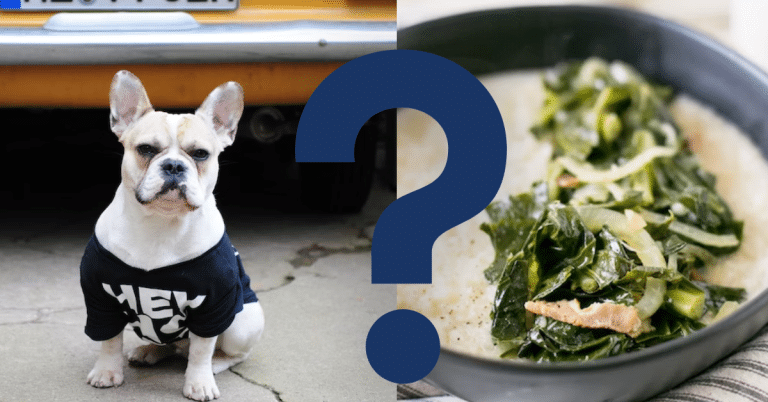Can Dogs Eat Rice? A Vet’s Opinion

Rice is a highly digestible source of carbohydrates, but can you feed rice to your dog?
Dogs can indeed eat rice, which may even complement their diet. Carbohydrates from rice are a valuable source of nutrition and energy for dogs.
Benefits Of Rice For Dogs
Here are some of the benefits of feeding rice to your dogs:
- Supply of carbs: Rice is a rich source of complex carbohydrates. Carbohydrates are a vital source of energy for dogs. Complex carbs release energy more gradually and take longer to digest than simple carbohydrates, which are readily absorbed and can raise blood sugar levels. For dogs, especially those active or with high energy needs, rice can offer an excellent balance of energy.
- Simple to process: For dogs, white rice provides a source of carbohydrates that they may easily digest. It comprises starches that are simple to break down in the digestive tract and has no fiber. Because it is less prone to disturb the digestive system than other foods, it is a suitable alternative for dogs with sensitive stomachs or digestive problems.
- Rice is frequently suggested as a bland diet component for dogs experiencing digestive problems, such as diarrhea. This is because rice is simple to digest and might tighten loose stools. Rice can be a great approach to provide a dog the nourishment they need while their digestive system heals when mixed with a protein source, such as cooked chicken.
- Gluten-free: Rice is naturally gluten-free, so it is an attractive choice for dogs with sensitivity to or allergies to gluten. Wheat, barley, and rye are just a few of the grains that contain the protein known as gluten. While eating gluten-containing foods, dogs with a gluten allergy may exhibit itching, vomiting, and diarrhea symptoms. Rice may be a secure and wholesome substitute for grains.
- Cheap: Rice is a cost-effective source of carbohydrates for dogs. It is readily accessible and inexpensive to buy in large quantities. A dog’s diet may be supplemented with rice to give them more calories and nutrition without breaking the bank.
- Supply of carbs: Rice is a rich source of complex carbohydrates. Carbohydrates are a vital source of energy for dogs. Complex carbs release energy more gradually and take longer to digest than simple carbohydrates, which are readily absorbed and can raise blood sugar levels. For dogs, especially those active or with high energy needs, rice can offer an excellent balance of energy.
- Simple to process: For dogs, white rice provides a source of carbohydrates that they may easily digest. It comprises starches that are simple to break down in the digestive tract and has no fiber. Because it is less prone to disturb the digestive system than other foods, it is a suitable alternative for dogs with sensitive stomachs or digestive problems.
- Rice is frequently suggested as a bland diet component for dogs experiencing digestive problems, such as diarrhea. This is because rice is simple to digest and might tighten up loose stools. Rice can be a great approach to provide a dog the nourishment they need while their digestive system heals when mixed with a protein source, such as cooked chicken.
Rice is an excellent addition to a dog’s diet when included in moderation as part of a balanced diet. Dogs need a range of nutrients from various sources to maintain good health. Thus rice should be one of many food sources available to them. Based on your dog’s specific requirements and current health, a veterinarian can assist you in deciding how much rice to feed them.

How To Safely Give Rice To Dogs?
While adding rice to your dog’s food might be healthy, it’s vital to do so responsibly. Here are some pointers for feeding your dog rice safely:
- Choose the proper kind of Rice: White Rice is the kind that dogs can digest quickly. Brown Rice and wild Rice should not be given to your dog as they may be more challenging to digest.
- Cook the rice correctly: Rice must be fully cooked before being given to your dog. Undercooked rice can be hard to digest and might irritate your stomach. Before giving the rice to your dog, cook the rice in water per the directions on the package.
- Including protein: Although rice can provide your dog with carbs, adding a protein source is crucial. Combine cooked, lean protein with rice, such as boiling chicken or turkey, to make a balanced meal.
- Feed in moderation: As part of a balanced diet, the rice should be fed in moderation. Overeating rice can make you gain weight and may not give your dog the nutrition he needs. Based on your dog’s specific requirements and current health, talk to your veterinarian about how much rice to feed them.
- While dogs usually have no trouble digesting rice, some dogs may have issues when they first eat it or when it is consumed in large quantities. Keep an eye out for diarrhea, vomiting, or lethargy symptoms, and speak to your veterinarian if you have any unsettling ones.
- Keep spices and seasonings to a minimum: Plain, cooked rice is the most secure approach to feeding your dog. Spices and seasonings shouldn’t be used since they can hurt dogs. For instance, dogs may be poisoned by adding garlic and onions to their meals.
According to these recommendations, you may safely provide rice to your dog as part of a balanced diet. Remember to talk to your vet before making any significant dietary or feeding schedule modifications for your dog.
Will Rice Make A Dog Sick?
Dogs can eat rice, which is usually regarded as harmless, but like any meal, some dogs may react negatively to it. In general, cooked white rice is a highly digestible source of carbohydrates for dogs, and it may even be advantageous for those with specific medical conditions, such as diarrhea or gastrointestinal discomfort. To avoid any stomach distress or other adverse effects, it’s crucial to add rice to your dog’s diet gradually and in moderation. Some dogs may be sensitive to or allergic to rice, which can cause symptoms like vomiting, diarrhea, or lethargy when consumed.
Moreover, dogs may experience digestive issues or even food poisoning from rice that has been improperly cooked or infected with hazardous germs. Always boil the rice and handle it securely to lower the danger of infection. Generally, rice is healthy for dogs to consume, but it’s crucial to introduce it to their diet gradually and in moderation. It would help if you also kept an eye out for any symptoms of stomach trouble or other negative responses in your dog. Ask your veterinarian for specific guidance if you have any reservations about giving rice to your dog.

Vet’s Summary
Given that it is a highly digested source of carbs and can aid in supplying energy and minerals, rice can be a helpful addition to a dog’s diet. Also, it could be advantageous for canines suffering from digestive problems or diarrhea. The best rice to give your dog is cooked white rice, so be sure to prepare it correctly and only sometimes include it in your dog’s diet. Always watch for symptoms of digestive distress or other negative responses in your dog, and get advice from your veterinarian if you have any worries. Probiotics can be helpful for dogs in addition to rice.
Probiotics are “good” bacteria that can aid in maintaining a dog’s immune system and digestive tract in excellent condition. They could also be beneficial for dogs who are suffering from conditions like diarrhea or inflammatory bowel disease. Look for a probiotic supplement specially made for dogs and with a selection of various types of healthy bacteria when selecting one for your dog. Always adhere to the dose recommendations, and if you have any questions or concerns, speak with your veterinarian. Nevertheless, as long as it is done sparingly and cautiously, adding rice to your dog’s food may be safe and valuable.
Videos To Watch
Click on the link below and find out if dogs can eat Rice:
If you have questions regarding the foods your dog can eat, then check out this video:






